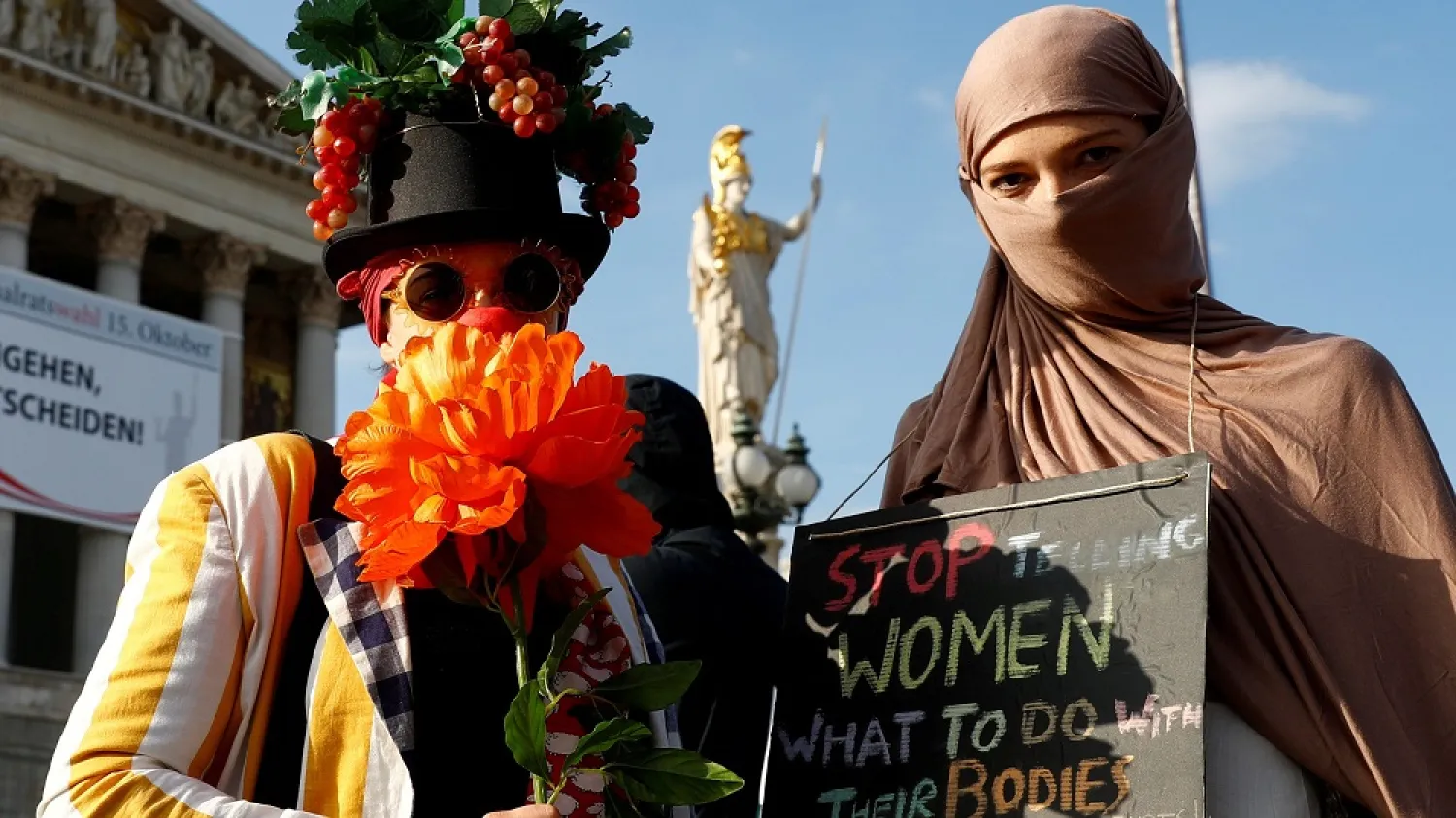Austria's new ban on the full-face veil, the niqab, made headlines worldwide after police recently fined an individual who was disguised as a whale to promote a chain of electronics in Vienna.
While the incident seems to highlight the absurdity of the ban, which came into force about a month ago, it turned out to be a marketing ploy by a PR firm that also called the police to inaugurate the shop.
The Warda Network for public relations said on Facebook: “50 million viewers online (a fine of 150 euros ($ 174), we are glad of the significant return made from a modest investment.”
While the police seek to implement the ban, they face restrictions of the law’s provisions and interpretations, which mainly aims to ban the burqa or the niqab, as a way to curb extremist tendencies, and the gender-based restrictive roles.
The law prohibits the full coverage of the face in public places, while it includes exceptions for people who wear masks as part of their work or in traditional celebrations, even if they did so in a provocative manner.
A well-known music club in Vienna, for example, had announced that the burqa could be worn as a Halloween costume.
"There is no need for anyone to fear punishment," said Vienna police spokesman.
Despite the legal gaps that serve actors and parties’ attendees, three Viennese street musicians disputed with the police. The police told the three accordionists that their horse masks are legal only when they play music, and that they had to take them off after finishing.
Committed police officers applied the law even in the parliament building. In early October, the police stopped shooting a promotional film in front of the parliament to verify the identity of an actor who was in a bunny costume, which represents the official mascot of the parliament.
The police spokesperson told the German News Agency (DPA) that there are people who called the police’s emergency number and reported a person covering his face. Police officers had to investigate in such cases, he noted.
Over the past weeks, a guide has been distributed to the police about the new law. While the authorities did not issue any data on the number of cases in which police demanded individuals to reveal their faces in the first month of the ban, the Vienna police had published data covering the first two weeks that followed the law’s implementation.
During this period, 21 people uncovered their faces at the request of the police, but without issuing fines, as most of them were tourists, and only a few were Muslim women.
According to the police, only 8 people refused to comply and will face sanctions, and two of them were "provocative".
Among them was Nora Fuerst, 28, a researcher in psychology from Germany who works at the University of Vienna. She was fined after refusing to lift a shawl covering her face, although the weather was warm.
"It was obviously a provocation," he said, explaining that the woman had clearly shown herself to be seen by the police.
George Zanger, Fuerst's lawyer, plans to appeal the fine, saying the shawl did not fully covered her face. Zangger also explains that his broader goal is to get a court sentence that ultimately leads to the suspension of the ban.
Feuerst, who considers she wasn’t provocative, told the Dear Standards newspaper that, based on her experience with the police, banning the face veil does not free women from oppression.
She added: “that men sought a law that supposedly protects women, but I felt weak and helpless in this situation."









